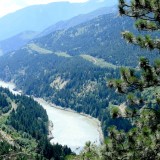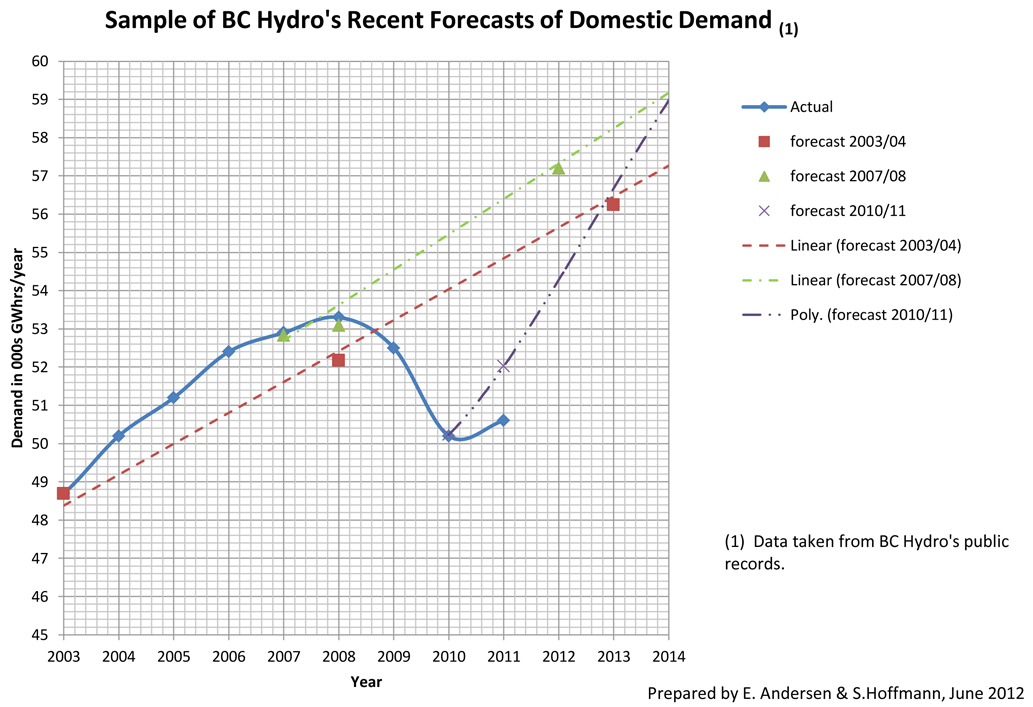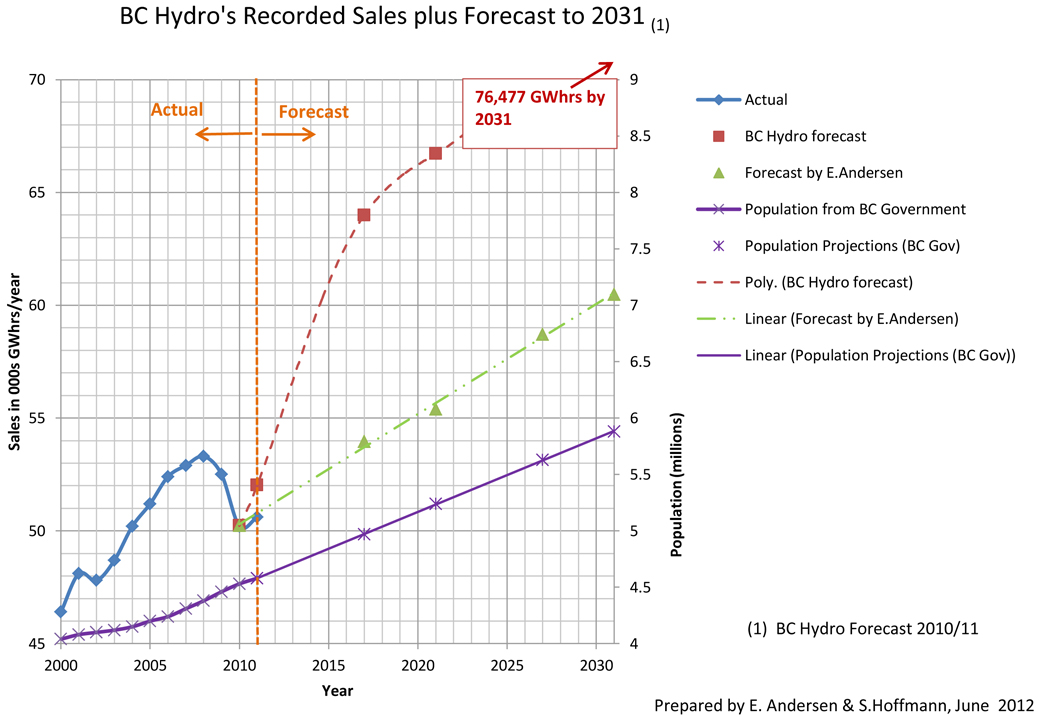The following is reprinted with permission from Watershed Sentinel.
Ever since the BC Liberal government surprised residents of BC’s Kootenays with its March 20, 2012 approval for the controversial Jumbo Glacier Resort, people have been asking: Why now? After all, the Jumbo Resort proposal has been around since 1989 and has been successfully opposed by local people for more than twenty years.
Then, on May 1, the Liberals introduced Bill 41, which included an amendment to the Local Government Act buried in a miscellaneous list. That amendment allows for the “incorporation of a new mountain resort municipality…whether or not there are residents in the area,” as long as the proponent “has entered into an agreement with the government with respect to developing alpine ski lift operations, year-round recreational facilities and commercial overnight accommodation within the area…” Just days later, on May 16, Bill 41 passed third reading.
Invermere Mayor Gerry Taft recently told East Kootenay News Online Weekly, “Developers who wish to rezone land have to follow a process that includes public hearings and a final decision by officials who are accountable to the residents who elected them. This legislation would empower a [cabinet] minister to give developers a special status that bypasses the democratic process and undermines the ability of local citizens to control development. The ability of the proposed Jumbo Resort, and other potential developments, to bypass the land use process and get their own municipality status without residents is an affront to local communities. This is far beyond a bad idea. The loss of democracy is a slippery slope, even slipperier than some land speculators and receding glaciers.”
Columbia River-Revelstoke MLA Norm Macdonald said in a recent press release, “Despite the fact that the majority of residents in the area do not support the development of a ski resort in the Jumbo Valley, the BC Liberals are determined to push ahead. And they are willing to go to incredible lengths to make that happen.”
So, to the question of “why now?” we can add: Why quickly enable what Michelle Mungall, NDP MLA for Nelson Creston, calls a “ghost-town resort municipality,” whose mayor and council would be appointed by provincial cabinet to “govern no one and be accountable to no one as they [make] land use decisions impacting an entire region”?
Slippery Slopes
One answer to those questions is revealed here for the first time. A director of Glacier Resorts Ltd., the proponent for Jumbo, is directly involved in promoting the controversial Comprehensive Economic and Trade Agreement (CETA), being negotiated in secret between Canada and the EU since May 2009, with the goal of signing it in 2012.
Celso Boscariol, a Glacier Resorts Ltd. director since at least 2008, has, as President of the Italian Chamber of Commerce in Canada-West (ICCC-West), been a primary advocate for CETA since at least 2011. Boscariol, who ran unsuccessfully in New Westminster-Coquitlam-Burnaby in the 1997 federal election, has long been a BC Liberal Party insider.
Boscariol’s advocacy efforts for CETA are in part funded by the European Union through three grants for the ICCC-West’s EU-Canada Partnership project, which not only promotes “the enhanced EU-Canada Economic Partnership,” but (according to its website, http://eu-canada.com) is also “working with local business organizations and involving the provincial CETA negotiators and policy makers.” Along with the EU, the sponsors for the ICCC-West’s EU-Canada Partnership project include the Canadian federal government, the government of British Columbia, the government of Alberta, NCTM – a large Italy-based law firm, the Italian Chamber of Commerce in Brussels, and the PostMedia Network (which owns newspapers across Canada).
CETA (Canada-EU Comprehensive Economic and Trade Agreement)
Calling CETA “a de facto corporate bill of rights,” Paul Moist, national president of the Canadian Union of Public Employees (CUPE), on July 10, 2012, released a legal analysis of leaked CETA negotiating texts and said the trade deal would “trump provincial powers over natural resources and public services” and “override areas of provincial jurisdiction set in the Constitution.” Moreover, CETA would undermine provincial and municipal powers to ensure that local public procurement contracts go to local businesses.
By July, more than 40 municipalities – including Victoria, Burnaby, North Vancouver, Saskatoon, Toronto, Mississauga, Hamilton, Ottawa, and Montreal – have formally asked to be excluded from CETA, especially from its restrictions on public spending and delivery of public services.
Blair Redlin, a Burnaby-based researcher with the Canadian Union of Public Employees, last year told the Georgia Straight (July 7, 2011), “What the Europeans want is just simply an open-tender, free market approach,” noting that CETA would give the EU access to federal, provincial and municipal procurements worth more than $100 billion per year. “What that means,” Redlin said, “is that they want to prohibit local governments from being able to prefer local suppliers and local businesses.”
Redlin also said that CETA could provide an opening for huge European water companies, like French multinationals Suez and Veolia, to push for the privatization of Canada’s public water system.
As a European organization called Corporate Europe Observatory has revealed, by 2009 the EU was asking that 72 countries would have to “liberalize” their public water services and give unlimited market access to European companies in order to trade with the EU. According to the Council of Canadians, after Mexico signed a comprehensive trade deal with the EU, it saw the takeover of electricity and water utilities by EU companies, as well as the doubling of its bilateral trade deficit.
Calling the scope of CETA “mind-boggling,” the Globe & Mail’s Gary Mason wrote (July 15, 2011) that “60 per cent of municipalities in BC have economic-development strategies that include local procurement and hiring. This is why the Union of BC Municipalities passed a motion at its annual meeting last year [2010] opposing CETA – a vote that mostly went unreported by the media.”
CUPE, the Council of Canadians, the CAW, the Canadian Centre for Policy Alternatives, the Trade Justice Network and others have been trying to alert Canadians to the dangers of CETA since at least 2010. Apparently, it was because of this activism that the ICCC-West’s EU-Canada Partnership initiative was launched.
Their website states: “Media coverage of the CETA negotiations in Canada has been mixed with increasingly negative viewpoints appearing in proportion to coverage of recent political and financial crises in some [European] member states and of vociferous lobbying by a few anti-CETA groups. By undertaking a media campaign in partnership with Postmedia Newspaper Network, ICCC will ensure objective coverage.”
On March 7, 2011, Boscariol hosted and moderated a discussion on “EU-Canada Relations: Recent Developments” at the Vancouver Club, with the EU Ambassador Matthias Brinkman, Canada’s Deputy Chief Trade Negotiator Ana G. Renart, and a provincial official. By November 2011, Boscariol was hosting International Trade Minister Ed Fast for a Vancouver speech on CETA at the ICCC-West, with Boscariol telling Fast, “Our members welcome the government’s efforts to strengthen the transatlantic linkages that make our economies stronger.”
Meanwhile, thanks to “bankster” bailouts and other factors, Italy’s economy was starting to spiral into crisis, along with much of the EU, with unemployment levels skyrocketing to record levels.
Junket to France
Then, in February 2012, even before the approval of Jumbo’s Master Plan was announced, a junket of Jumbo backers, led by Kootenay East MLA Bill Bennett, flew to France to discuss possible investment in Jumbo (and another ski resort planned for Valemont) with European companies. The junket members reportedly met with France Neige International – a ski resort association representing dozens of ski resorts in the French Alps; Compagnie des Alpes – a French government-controlled ski resort operator for resorts in France, Italy and Switzerland; and the Caisse des Depots et Consignations (CDC).
The CDC describes itself as “a fully French state-owned financial institution” with $322 billion in assets. It invests in some 400 private equity funds and is a major shareholder in a variety of multinationals, including (according to one of its websites) “the following companies which focus on construction of infrastructure for transport, water and environment: Veolia, Eiffage, Vivendi and France Telecom.” Clearly, the Caisse des Depots et Consignations is one of the most powerful financial institutions in all of Europe.
When the junket returned to BC, Glacier Resorts Ltd. vice-president Grant Costello told the Invermere Valley Echo (Feb. 23), “In a short period of time we were able to build new relationships with a diverse group of French government officials, mayors, entrepreneurs, and corporate executives all of whom are interested in exporting their knowledge and experience to North America through the gateway of the Kootenays.”
Business Forum
Just days later, March 14-16, the GLOBE 2012 businessfest met in Vancouver. Part of the conference included the “EU-Canada Business Forum on the Environment,” which the EU-Canada Partnership website calls its “very first event.”
The description of that event reads: “The business forum brings together Canadian and European SMEs [small and medium enterprises] in the environmental sector to discuss the state of the industry and developments arising from the Comprehensive and Economic Trade Agreement (CETA) currently under negotiation by Canada and the European Union.”
Giving the Welcome Remarks were Celso Boscariol (as President of the ICCC-West), Anna Biolik, Regional Director for Foreign Affairs and International Trade Canada, and Janet Quiring, Director of International Trade at BC Ministry of Jobs, Tourism and Innovation.
The event was co-sponsored by the Government of British Columbia (which has subsequently been hosted by the EU-Canada Partnership project at an event in Milan touting the province’s “opportunities” for investment in areas such as “green energy, conventional and offshore oil/natural gas, coal and coal-bed gas”).
Less than a week later, on March 20, the BC government announced its approval for Jumbo Resort.
Trade Barriers
The busy Celso Boscariol then went to Montreal. From April 13-17, the 2012 World Summit/National Spring Conference of the Canadian Corporate Counsel Association met in Montreal to discuss “how global legal issues will influence domestic cases and vice-versa.”
Celso Boscariol gave a major power-point presentation called “Bilateral Ambition: Canada, the EU and the Comprehensive Economic and Trade Agreement (CETA)” where he spelled out the “current obstacles” to a successful trade agreement and to fully liberalized trade: provincial regulations; public procurement; supply management; market access; intellectual property; monopolies and state enterprises, among others.
While Boscariol was enlightening his fellow corporate lawyers on CETA, the Harper government dispatched 18 cabinet and deputy ministers to hold press conferences across the country on the “benefits” of CETA; it also created a new webpage about the deal.
Then on May 9, ICCC-West announced that it “is organizing an 18-month long programme of business forums, seminars, conferences and convivial events across Canada and in Europe to promote business opportunities for SMEs and the creation of a platform for cooperation in anticipation of CETA’s finalization.”
Just days later, the controversial Bill 41 was passed, creating the opportunity to incorporate mountain resort municipalities with no residents.
All this has been unfolding against the backdrop of the Harper government’s Bill C-38, which gutted the Fisheries Act, repealed and rewrote the Canadian Environmental Assessment Act, and passed most environmental responsibilities to the provinces. The CETA would then, in turn, trump provincial and municipal regulation – leaving the corporate sector fully in charge.
No wonder it’s being called “a corporate bill of rights.”
“Capital Flight”
Oberto Oberti, the President and CEO of Glacier Resorts Ltd., kindly emailed to me the names of Glacier’s board of directors (The list with other details about the Board of Directors can be found HERE). Oberti also emailed “Quick Facts” about Jumbo, including this statement: “Employment Equity Plan has been proposed to ensure preferential treatment of local residents and First Nations members.”
But according to the Calgary Herald (June 14, 2012), CETA would “enable trained professionals and tradespeople to cross borders and work.”
Indeed, Glacier Resorts Ltd. director Celso Boscariol specializes in immigration law at Vancouver law firm Watson Goepel Maledy LLP.
Oberto Oberti also emailed a document that shows how relatively small in size Jumbo would be by comparison to other BC ski resorts like Panorama, Sun Peaks, Whistler, and a second document containing a 2007 published statement by Glacier’s Grant Costello: “At build-out, in 20-30 years, the [Jumbo] resort will have only a handful of permanent residents just like Panorama has now after 40 years.”
It’s hard to interpret the word “handful” here, but it’s a very curious statement, given that Jumbo’s government-approved water supply from groundwater sources amounts to an “ultimate extraction rate” of 20 litres per second. That works out to 1,728,000 litres per day.
Assuming a generous 250 litres per person per day, by my calculations 1,728,000 litres is sufficient to provide the daily needs – drinking, bathing, laundry, cooking, washing the limousine – of some 7,000 permanent residents. But if there are to be only “a handful of permanent residents” at Jumbo, and 3,000 daily visitors, why would Glacier Resorts Ltd. need the approved 20 litres per second of water?
The answer may lie with the CETA trade deal, and with that “mountain resort municipality” status that Jumbo, and other BC ski resorts being planned, can obtain.
According to the New York Times (June 10, 2012), the EU is currently experiencing “capital flight,” with money leaving the region. “From Italy, Greece, Spain and other countries in the European currency union, the affluent these days are moving money into hard assets valued in something other than euros, which have been plunging in value.” What better “asset” than water?
Having an incorporated municipality with no residents, the proponent and its investors, under CETA, could do just about anything they want with the groundwater – privatize it, form a private utility, sell the water by pipeline across the border. What’s to stop them? And if somehow they were stopped, under CETA they could sue: not just for compensation, but (potentially) for compensation for lost future profits.
Stopping CETA & Jumbo
Oberto Oberti told the Times Colonist (March 21), “My hope is we will see the opening day for Christmas 2014.”
Business In Vancouver (April 10, 2012) reported that Grant Costello “doesn’t expect any brush to be cleared to make way for the project until mid-2013 at the earliest. He said the company’s environmental certificate [which expires in 2014] has 195 conditions, some of which are preconstruction requirements.”
Opponents to Jumbo – including the Ktunaxa First Nation, local conservation group Wildsight, and many others – have clearly drawn a line in the snow on this project. If they were to team up with CETA opponents, they would be even more formidable.
NDP MLA Norm Macdonald told The Tyee (March 21) that if the NDP wins the election scheduled for May 2013, it would be possible to reverse the decision on Jumbo.
One of the reasons the Harper government is pushing for CETA to be signed in 2012 is that it fears the results of provincial elections in BC and Quebec. As Sean Smith, a community-based organizer with the CAW, has written (CCPA Monitor, Sept. 2010), “…before CETA can be officially signed and sealed, it requires the approval of every provincial government. So it is particularly vulnerable to public pressure – just one Premier can derail it.”
Similarly in Europe, 27 member-nations of the EU would have to approve CETA. Currently, the leaked chapter on intellectual property is causing controversy because of potential threats to internet use, privacy, free speech and other issues.
The same CETA chapter proposes to raise pharmaceutical drug costs in Canada by $3 billion per year, which reportedly bothers some Canadian premiers.
Sean Smith puts it well: “Canadians need to learn that the CETA talks have nothing to do with giving Canadians a good alternative to American markets and forging closer ties with happy Swedes and Danes and other progressive Europeans. That mythical EU is disappearing faster than a Greek pension and is being replaced by a corporatist continent that thrives on things like Bulgaria’s minimum pay of 97 Canadian cents an hour. (No, that’s not a typo.) It’s up to us to break through the veil of secrecy and fantasy that has been thrown over these trade talks, expose the deceptive spin, and tell Canadians what CETA is really about.”
CETA and Jumbo Glacier Resort could expire together. The next few months will be crucial.
Other Responses to CETA
“One of the aspects of CETA most worrying for local leaders is the deal’s potential to undermine public control over water and other key municipal services. The leaked initial offer showed that the EU companies want access to contracts in Canadian local government services, going so far as to name specific local utilities, public transit agencies, and other public services in dozens of municipalities across the country… It’s interesting to note that many EU municipalities have taken their own water back under public control after problems with privatized water systems (often privatized under the same EU firms that are trying to get into the Canadian market).”
— Rob Duffy, Director of the Columbia Institute, CCPA Monitor, June 2012
“The Harper government sees CETA as a way to further deregulate and privatize the Canadian economy while increasing corporate power and undermining our democratic options for the future. The EU trade deal could: unfairly restrict how local governments spend money and [could] ban ‘buy local’ policies; add up to $3 billion to the price of drugs; increase Canada’s trade deficit with Europe, leading to significant job losses; empower European corporations to attack environmental and health measures; undermine protections for health care and culture in past trade deals; create pressure to increase privatization of local water systems, transit and energy; strip farmers of their rights to save seed.”
— The Council of Canadians
“With most of our private sector already owned by US corporations, the planned privatization and sale of much of our public sector to European business firms will complete our country’s transformation into a foreign-controlled vassal-state.”
— Sean Smith, CAW activist now with Trade Justice Network, CCPA Monitor, September 2010
***
Joyce Nelson is an award-winning freelance writer/researcher and the author of five books.










